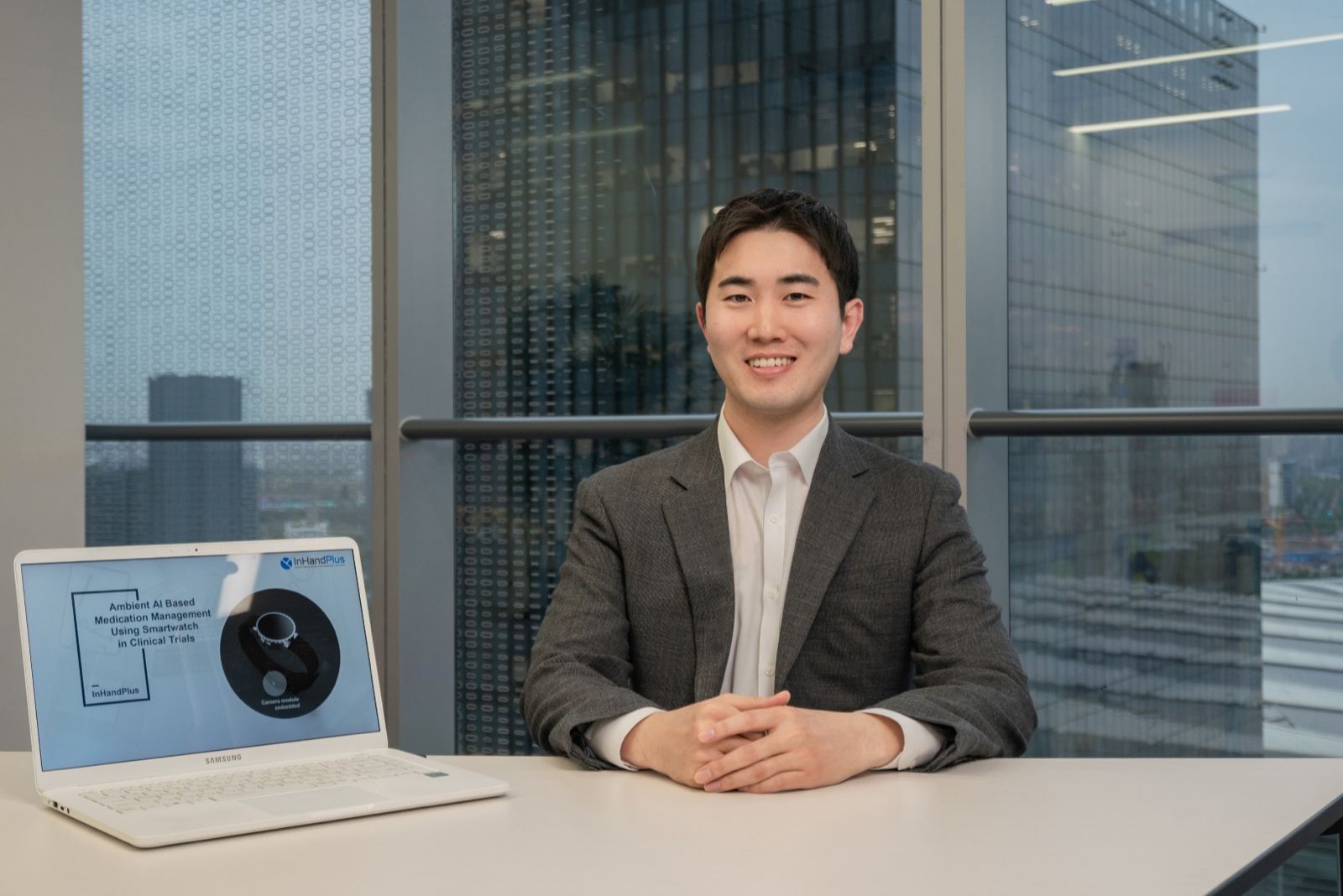AsiaTechDaily – Asia's Leading Tech and Startup Media Platform

How Jacob Wedderburn Day, CEO Stasher Is Redefining The Way Businesses Value Space?
Jacob Wedderburn Day is the CEO and co-founder of Stasher, a platform that is redefining the way businesses value space. Stasher unites customers who need temporary city storage with businesses that want to monetize their underused space. Already live in over 250 cities across six continents (it will be a while before they launch Antarctica), Stasher has made its name as the platform that helps tourists worldwide safely store their luggage.
Jacob graduated from Keble College, Oxford, in 2015, along with roommate and co-founder Anthony Collias. Stasher was born the summer they graduated. Jacob loves sports, in particular, football, and of course, traveling.
In an exclusive interview with AsiaTechDaily, Jacob says:
My advice is always, if you have an idea, get the most basic version of it live that you can, and see if you can sell it. Another piece of advice I once got was, “the most important thing a business can celebrate is sales.” Fundraising is glamorous, but lots of companies have fundraised and gone bankrupt. If you’ve got a product people like enough that they are willing to part with their hard-earned money to buy it, then you’ve actually got a business. In the early days, that’s the only hypothesis that you need to test. It’s tempting to wait until you have “the perfect product” and overthink it… but it’s far better to start doing stuff. You learn the most that way.
Read on to know more about Jacob Wedderburn Day and his inspiring journey.
Please tell me about your background, and what are you working on currently?
Jacob Wedderburn Day: So I’m originally from Kent, but I spent three years in Oxford at University and moved to London for my masters at UCL. I’m passionate about startups, economics, the sharing economy, game theory, and football.
We’re currently working on some exciting things at Stasher, namely winning the market.
Anthony and I have created a very scalable model, and the platform could launch (within reason) anywhere there is an Airbnb, allowing Stasher to launch more than 10,000 more cities. We’re bridging the gap between VR and Hotels.
So with the company growing @ three times year on year, we’re working on improving the processes and systems in place to manage this and a company of 20 employees.
What motivated you to get started with your company?
Jacob Wedderburn Day: It was Anthony, my cofounder and old roommate who had the lightbulb moment. He was asked by a friend to store his luggage at his home in London near King’s Cross station.
Anthony joked, “Sure, but I’m charging you for it” and the founding words of Stasher had been uttered.
We’d always talked about going into business together – we both liked the idea of running our own company – and now we had an idea to throw our energy into.
What is your current main product, and (If there is any) can you share any product pivot story from founding to the current product?
Jacob Wedderburn Day: Our current product is Stasher (available in the App Store and Google play also).
We’re the world’s first online platform linking travelers, event-attendees, and hotel guests to ‘StashPoints’ where they can store their bags on a short-to-medium term basis. A simple solution to enhance the guest’s experience and freeing customers of a notorious pain point.
Funnily enough, we started storing luggage in people’s flats (specifically mine and Anthony’s) long before we refined our model to just operate in hotels and local businesses. Back in those days, I was leaving lectures early to help customers with their bags, and I’m so thankful that despite having no reviews, there were people who were still interested in our concept.
We soon realized this was a flawed model, and required too much time and effort. Changing the model to operate in hotels and local businesses was seamless, as the vast majority of our locations are already set up to store luggage, so security, procedures, and staff are already in place.
How much money (funding) have you raised in total so far? When was the recent funding round?
Jacob Wedderburn Day: To date, we have raised around $4.5M in funding. Our latest round was $2.5M announced in TechCrunch on January 21, 2020, led by Venture Friends, along with various angels, including Johan Svanstrom, former president of Hotels.com.
How have you attracted users and grown your company from the start? And which were your marketing strategies to grow your business?
Jacob Wedderburn Day: As I mentioned earlier, we first began by storing luggage in people’s flats.
Those first customers came through Google ads, and despite having no reviews, there was proof of a demand for our service. Since then, we have tried the majority of offline and online marketing strategies – from walking into hotels to flyering to Facebook ads to PPC.
Our primary strategies to acquire customers these days are online search and referral partnerships.
Which is the best marketing tool for the growth of your startup, and why?
Jacob Wedderburn Day: For organic growth, SEMrush has been our go-to tool for keyword volume metric and day-to-day reporting. However, Google Analytics is probably our most important marketing tool for growth as all departments can use it.
What do most startups get wrong about marketing in general?
Jacob Wedderburn Day: In my opinion, where startups can go wrong is pumping money into marketing without analyzing the funnel for the specific business type.
So the most important thing would be to know your focus. Ours has always been laser-focused on converters (bottom of the funnel) before we aim to gain mass-awareness traction (top of the funnel).
If companies do not know their objects and fail to identify their funnel, they can waste a lot of money on PPC and social.
What were the internal decision processes in determining when to begin fundraising, and what were the logistics for this? And how many investors have you met so far and how did you meet these investors and which channels worked best for you?
Jacob Wedderburn Day: It’s a good question because, in an ideal world, you would never need to raise external investment. However, we identified early on that Stasher was highly scalable, and venture capital could help us accelerate our product design and growth.
We were fortunate in our first two rounds. For our angel round, the first investor we met led the round, so we barely met anyone else. In our first VC round, we spoke to maybe ten investors and got 3 of them! As you get more mature as a company, the expectations grow, so for our last round, we were much more strategic – we made a funnel of almost 100 investors and contacted all of them, and most took meetings! This kept us pretty busy. LinkedIn and introductions from other founders/investors have tended to work quite well for us.
What are the biggest challenges you’ve faced and obstacles in the process of fundraising? If you had to start over, what would you do differently? (Your insight or advice on this would be very helpful for startups)
Jacob Wedderburn Day: Our biggest challenge, by far, is the question of market sizing. Almost any investor follows a formula of “What’s the problem? Why this solution? Why you? How big is the market?”
We’ve always had good answers to the first three, but the trouble with the fourth question is that it’s hard to quantify. The market is growing as we go… we’re creating it!
Before Stasher, there was a scattering of locker providers, but it’s a disaggregated industry and very hard to get meaningful data. Plus, there’s a massive shadow market of people storing with each other, or carrying bags they would otherwise store given an affordable option, that is difficult to quantify.
We’ve come up with good answers, but it’s much easier if you can point to an industry report that says, “The market for x is worth $y billion” – then investors are happy because they don’t even have to think about it. As long as the market size is viable and can more than return their fund, you’re all good.
What are your milestones for the next round? And what are your goals for the future?
Jacob Wedderburn Day: Our goal right now is scaling. We’ve always said everywhere you can stay in an Airbnb, you should reasonably be able to stash your luggage with Stasher.
So we have milestones in terms of launching new cities. We also have milestones in terms of revenue and partners. Last year we broke the $1m and $2m revenue mark in the same year, which was cool – if we can triple the business again, then we’re really onto something.
How do you plan to expand globally?
Jacob Wedderburn Day: As a travel platform, we always aimed to build a global platform, and we’re incredibly proud to have reached that goal. Being present across Europe, the US and Asia prove there is a demand for our services worldwide. And we already have a global presence across six continents (1300+ locations in over 250 cities).
So the next steps would be about solidifying our position as the most trusted brand in the market in those locations. To do this, we need to continue pushing for exclusive integration with top quality brands to provide storage. We also need to scale to everywhere (within reason) there is an Airbnb or VR (vacation rental) provider.
What are the most common mistakes companies make with global marketing?
Jacob Wedderburn Day: Good question! Since we’re an online platform, besides reaching hosts in person, we do most of our global marketing online. We also have a very international employee team that covers most of the top speaking languages, so we’re able to localize that content in-house.
I think the biggest mistake for companies is failing to localize their marketing approach. Not realizing that failing to recognize cultural differences in marketing can have devastating consequences. Different markets respond in contrasting ways, so in-depth research needs to be put into the approach (on the ground and in online marketing) to ensure the delivery is smooth. I’d also try to ensure content is localized in local market languages.
What are the most common mistakes founders make when they start a company? (or What should all first-time startup founders know before they start their business?)
Jacob Wedderburn Day: Go into business with people you trust, and you know you work well with them. Originally we were a founding team of 3. At the time, I thought it was good because we could always resolve decisions democratically, but looking back, even the fact that we had to vote on problems was indicative of the fact that we weren’t all aligned. It shouldn’t be difficult to agree on things rationally with your cofounders. Above all, you should have the same values. Sometimes, that’s difficult, because when you start out, you have no idea where you’ll end up.
Luckily, Ant and I are very good friends and have known each other for eight years now. When our third cofounder left, it was a challenging period, but once we pulled through that, we realized how much we trusted each other, and I don’t think we’ve had any problems turn into arguments ever since.
What’s the best advice you’ve ever received? And What advice do you have for someone who is interested in doing similar things like yours or in a similar direction?
Jacob Wedderburn Day: “It’s always better to act decisively – even if it’s not the optimal plan.” It’s tempting to overthink things, but in business, it’s normally better to have a bias to action. You learn more by doing than by speculating.
My advice is always, if you have an idea, get the most basic version of it live that you can, and see if you can sell it. Another piece of advice I once got was, “the most important thing a business can celebrate is sales.” Fundraising is glamorous, but lots of companies have fundraised and gone bankrupt. If you’ve got a product people like enough that they are willing to part with their hard-earned money to buy it, then you’ve actually got a business. In the early days, that’s the only hypothesis that you need to test. It’s tempting to wait until you have “the perfect product” and overthink it… but it’s far better to start doing stuff. You learn the most that way.
You can follow Jacob Wedderburn Day here.
Are you looking to secure investment for your startup or a keen startup enthusiast, keep an eye on our interview section.
Follow Asia Tech Daily to know about the innovative startups and how they are revolutionizing the ecosystem.





